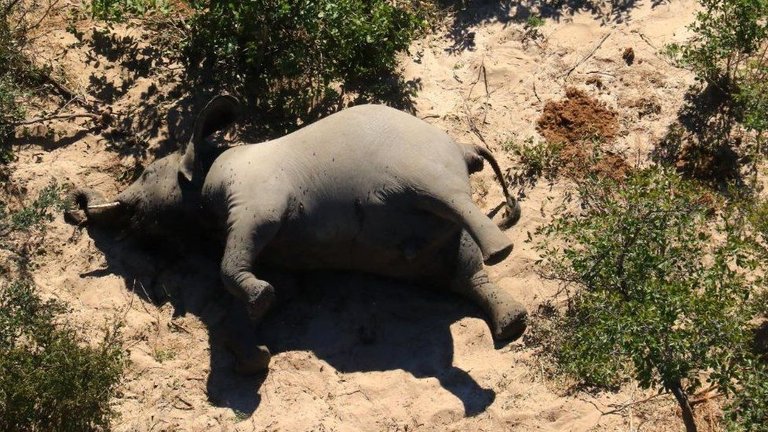
Scientists are growing increasingly concerned about the mass deaths of hundreds of elephants in Botswana, but are still unsure about what is causing the problem. According to the Guardian, at least 350 elephants have died in the African country in the past few months.
Researchers first realized that something was wrong in the Okavango Delta, where 169 elephants were reported in the month of May. By mid-June, that number had doubled to over 300.
Dr. Niall McCann, the director of conservation at UK-based charity National Park Rescue, said that a mass die-off like this is highly unusual.
“This is a mass die-off on a level that hasn’t been seen in a very, very long time. Outside of drought, I don’t know of a die-off that has been this significant,” McCann said.
It is unclear exactly what is causing these animals to die, but there are a few clues. Local sources told reporters that about 70% of these animals have died around waterholes. Some researchers think that perhaps the water might be somehow poisoned or tainted, but the government of Botswana has not tested any samples from the water holes yet.
“When we’ve got a mass die-off of elephants near human habitation at a time when wildlife disease is very much at the forefront of everyone’s minds, it seems extraordinary that the government has not sent the samples to a reputable lab,” McCann said.
McCann also said that the researchers were able to determine that many of the animals had to die very quickly, judging by how they had fallen straight down on their faces. However, a large number of the animals also appeared to die more slowly.
“So it’s very difficult to say what this toxin is,” said McCann.
McCann said that Covid-19 has even been suggested as a possible cause, but most researchers find this possibility highly unlikely. Oddly, this seems to be somewhat localized, as neighboring counties have not reported mass elephant deaths.
There are reportedly about 15,000 elephants in the delta, which is nearly 10% of the total population for the entire country. A large portion of the country’s GDP, an estimated 10-12%, is generated through eco-tourism. This is the second most lucrative industry in the country, surpassed only by the diamond industry.
Last year, the government of Botswana lifted its ban on hunting wildlife, and has since begun selling expensive hunting rights to international poachers.
Botswana has the largest elephant population in the world, with an estimated 130,000 elephants within its borders. The newly elected government says that the ban was revoked because the large elephant population was beginning to have an impact on people’s livelihoods as the animals increasingly came into contact with humans.
Despite their relatively high numbers in Botswana when compared with the rest of the world, Elephants are generally thought to be an endangered species, especially in places like Asia, where they are officially listed as such. In Africa, elephant populations are listed as vulnerable, but they have been on a rapid decline due to overhunting and loss of habitat.
Oh! So sad,
hmmm - CHEMTRAILS? 5G SATELLITE RADIATION? The water molecule changed by 5G - in their bodies or food? LACK OF FOOD OR FOOD POISONED BY ENVIRONMENTAL TOXINS - what could it be??? any of the above.
wow, this is the first time hearing about this... very strange and also very depressing. I hope this isn't a signal of an extinction level event.
Peace^^